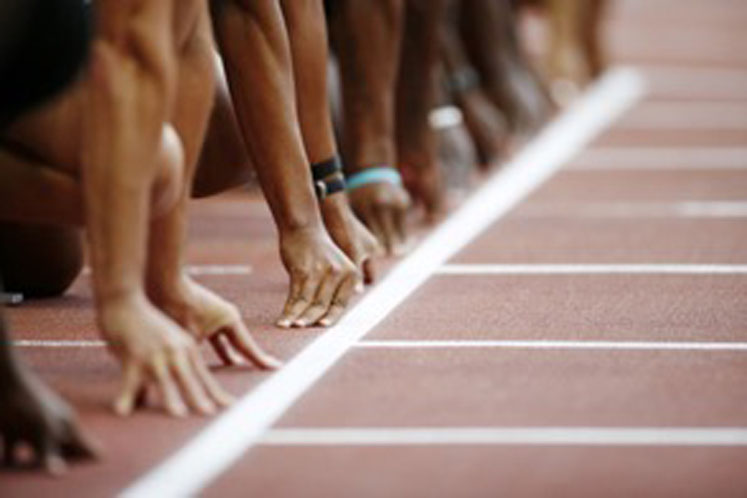Marred by a questionable past (doping scandals, prejudice against milk co-products and an association with bodybuilders, etc.) the market is now experiencing an undeniable renaissance.
There are two key trends that are shaping current developments in this field. On the one hand, sports nutrition is broadening its horizons beyond its traditional consumers, placing more importance on health and well-being. On the other hand, these new users are looking for more naturalness and technicality.
As such, there are great growth prospects for these products, which have managed to adapt to the ongoing health crisis! In 2019, the global sports nutrition market was valued at nearly $16 billion, with an expected growth of almost 9% per year until 2027).
The market for sports nutrition ingredients also continues to grow, showing an expected increase of approximately 5% until by 2025.
If we look back at the 1980s and 1990s, sports nutrition products were mainly used to build mass (whey, casein, BCAAs, etc.), energise (carbohydrates) and recover (electrolytes).

Laure Egoumenides
For more than 10 years now, this market has seen its consumers change profoundly, with the recruitment of so-called mainstream participants: weekend sportspeople, nature lovers, hikers and people who go to the gym.
These new end users have gradually joined the traditional core target group of bodybuilding enthusiasts and athletes. In 2 years, there has been a 23% increase in the number of fitness centres in Europe and a user base that is much less male dominated: today, one woman in two is active in sport.
At the same time, sport nutrition innovations support an active lifestyle. They address the needs of consumers who watch their weight and/or manage their performance, but also take a more holistic approach to health (digestion, immunity, joints, etc.).
More recently, the ongoing coronavirus crisis (including lockdowns) has had lifestyle repercussions and affected the way we approach exercise. The ecosystem has been modified: whereas some enthusiasts have strengthened their activities at home, others have taken up activities such as walking, cycling and running.
At the same time, professionals have adapted by engaging a rapidly growing number of online coaches and the digitalisation of gyms. Food, nutrition and sports practice play an even more important role in these times. In this context, it’s likely that the market will remain dynamic in the coming years and that there will be many opportunities for brands.
High level of sports nutrition expertise
To meet the expectations and requirements of athletes, market players are investing in various areas of development. Amongst these, the naturalness and technicality of ingredients and products are priorities.
Indeed, as in other health and nutrition markets, and even more so in sports nutrition, transparency and clean labels are essential. More than ever, consumers are looking for natural products with inherent health benefits.
This naturalness can be expressed in many ways. First, through the use of plants and other herbs instead of synthetic ingredients. The “phyto” trend and the “vegetalisation” of nutraceuticals have largely contributed to these new consumption habits.
In the same way, sports nutrition has not escaped the “no” trend. However, the natural revolution is mainly to be found at the heart of proteins. For environmental, ethical, health or nutritional purposes, every consumer has at least one good reason to switch to plant-based products.

This need for naturalness does not however justify a lack of efficiency. Consumers expect high-quality products. Innovations are turning to the composition of high-quality ingredients that are patented, branded and often tested on athletes to confirm their effectiveness. The scientific guarantee is a reassuring sign of quality and effectiveness for the consumer.
Thus, the demands and innovations of the active nutrition market contribute to balancing out the harmful effects of sport, such as oxidative stress linked to intensive practice.
Oxidative stress is responsible for tissue degradation, poor adaptation to exercise and reduced training efficiency, and reducing it is now a major target for athletes. We now know that our antioxidant defences prevent oxidative stress and inflammation … and facilitate physical and mental well-being.
Optimal antioxidant management: the missing link
To combat oxidative stress and improve recovery in sportspeople, medicinal plants can augment cellular health. That is why Robertet, the naturalness expert, has developed Melorun.
Based on a sustainable melon juice concentrate, Melorun has been specifically designed to counter oxidative stress in the context of physical activity. The concentration of SOD in Melorun is 5–10 times higher than in the other melon variety.
Its efficacy has been demonstrated after 2 months of supplementation at only 40 mg/day in a clinical reference study conducted on a population of recreational users, as well as in a consumer study on a professional volleyball team. To go further, four preclinical studies have enabled us to better understand the mechanism of action behind this efficacy.
To develop a solution that’s totally in line with athletes’ needs — and meets their expectations and requirements — Robertet has enlisted the help of Dr Saramito.
He forged his experience and used his skills with top athletes such as the French Olympic team at the Atlanta Olympic Games and the Subaru team at the World Rally Championship. He has been recommending melon SOD to high-level athletes for 20 years now. Melorun
- promotes physical well-being
- facilitates mental well-being
- protects magnesium levels
- prevents oxidative stress and inflammation
- supports the integrity of muscles and joints.
Robertet uses a patented, ecological and gentle process that’s done near the melon fields for complete traceability. Through encapsulation, the natural SOD concentrated in Melorun is fully protected, ensuring the bioactivity of the ingredient.




